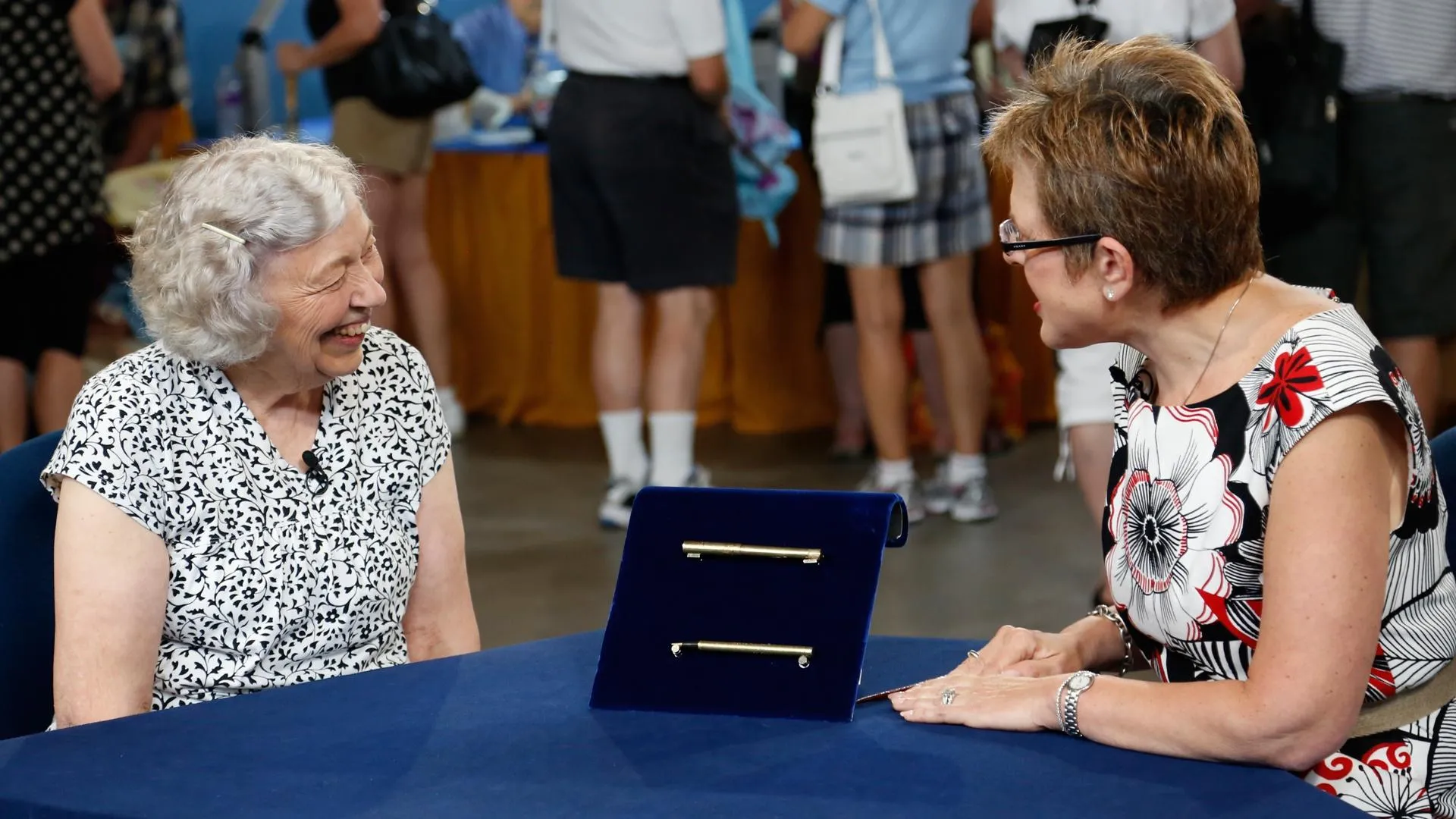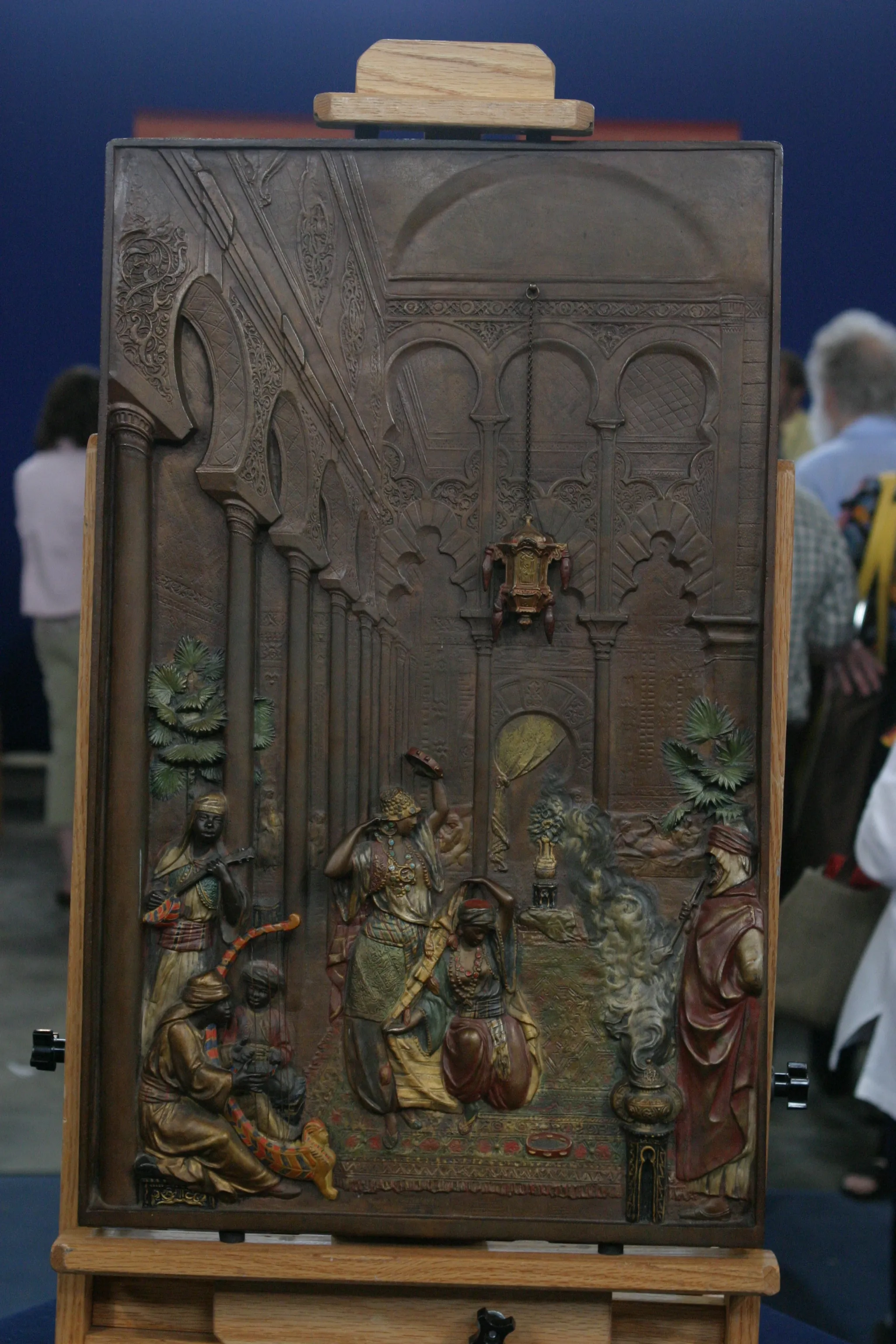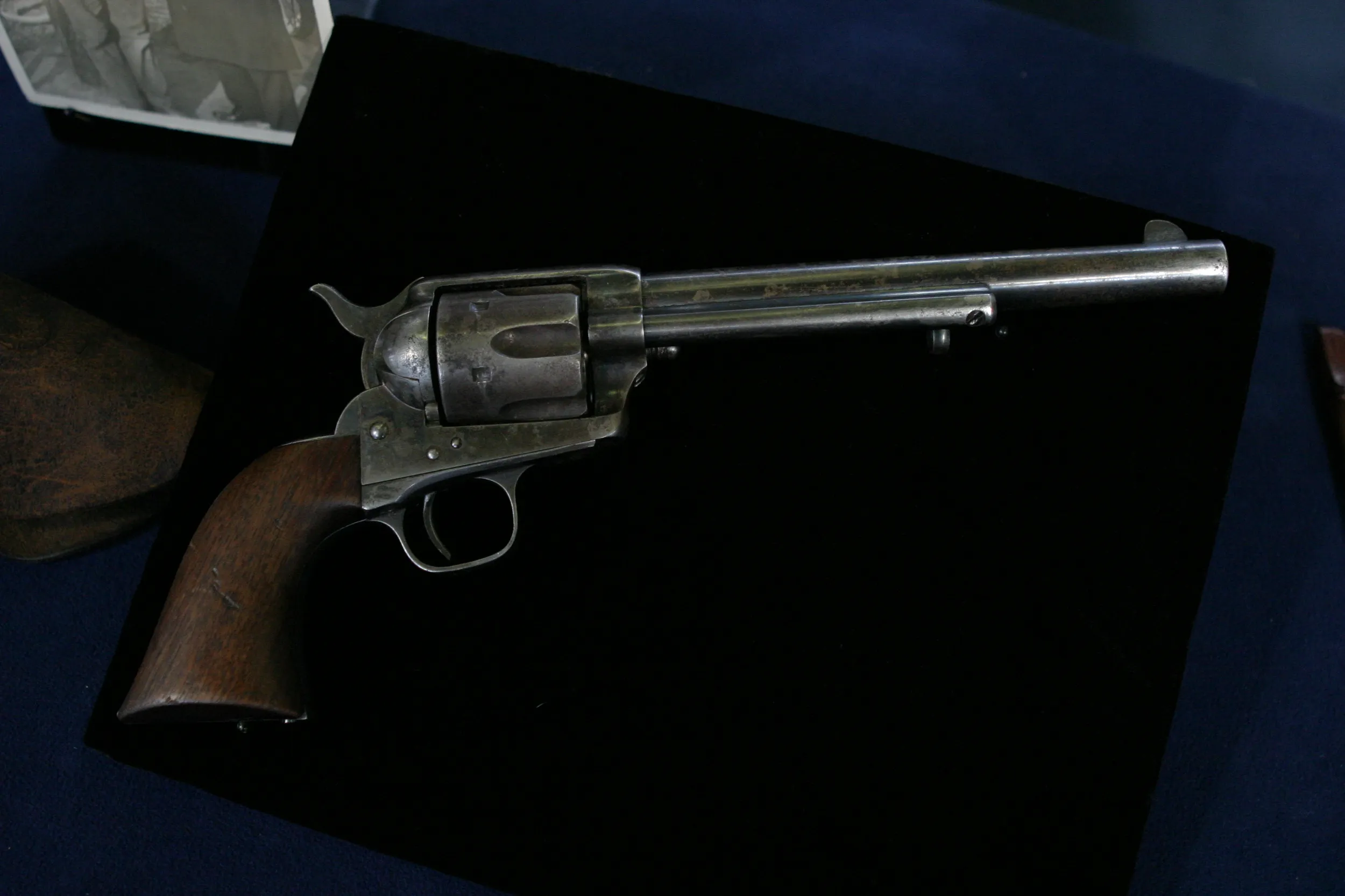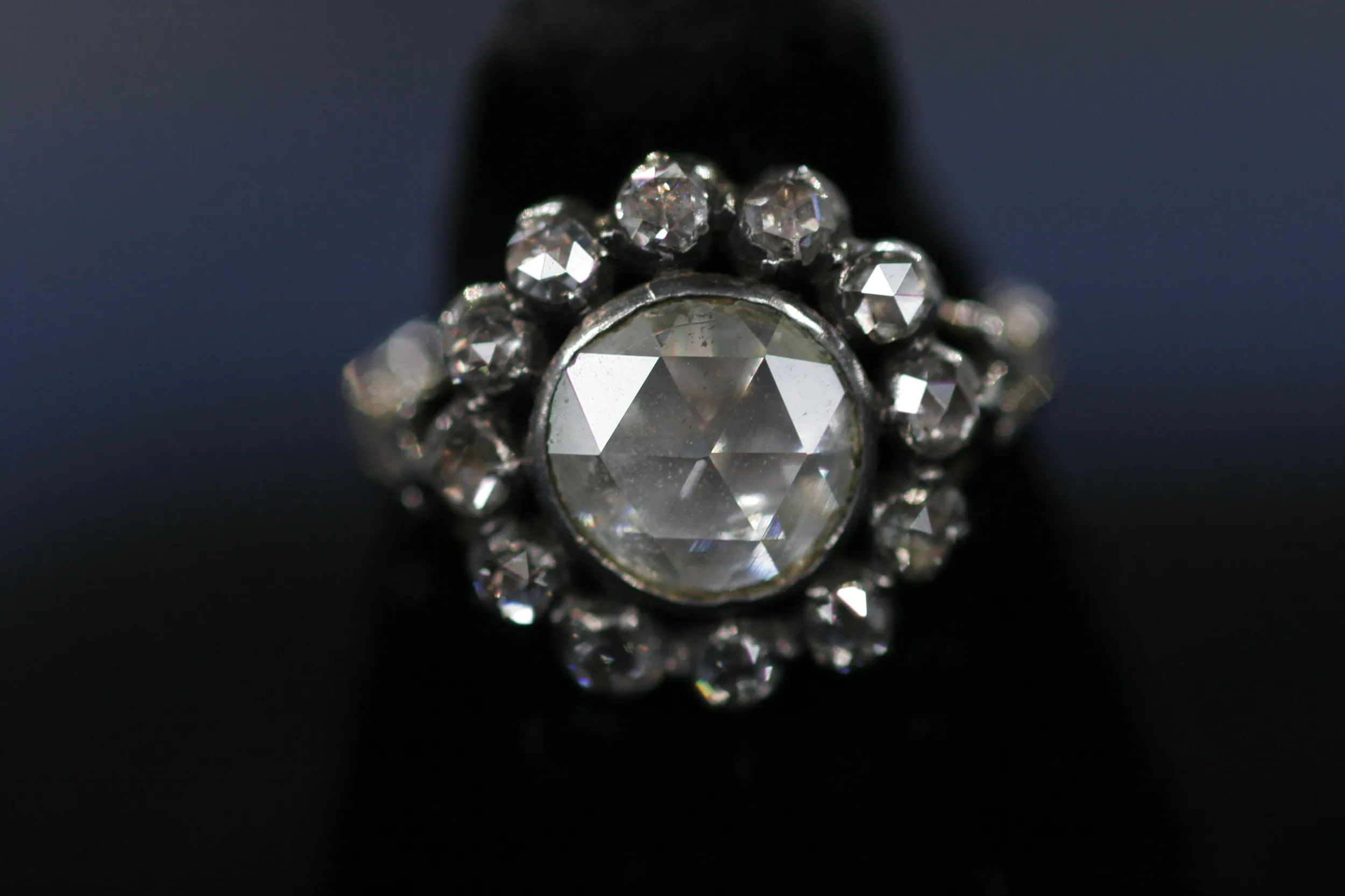GUEST: This is a walking cane. The stick is bamboo and the handle is elk horn. It belonged to General Andrew Jackson. The general gave it to Dr. John W. Baylor. Baylor is an ancestor of my husband's: great-great-great-grandfather.
APPRAISER: The first question we have to ask ourselves is how do you know that this is from Andrew Jackson? How do we know?
GUEST: Well, first of all, on the top of the cane is a silver plaque that says "General A. Jackson to Dr. John W. Baylor."
APPRAISER: You look at two things: construction-- the forensics of what we're looking at-- and then the provenance associated with what you have. Now, direct family descent is very good, so we can take that through your family and bring it straight to you. So that's the first plus. That's part of the reason I know it's real. Secondly, Andrew Jackson was known to give canes to folks.
GUEST: Oh.
APPRAISER: Fortunately or unfortunately, it's not an uncommon thing. Jackson gave canes. Then we dig into the silver plate a little bit. A lot of this stuff gets faked over the years. We look at this and it has all the signs and characteristics of a jeweler from the 19th century making this the way it should have been made. It's a commercially made cane-- it's not a hand-made cane-- but it was owned then by Andrew Jackson. So then we have to get to the discussion of value and what is it worth. This cane as a cane today? $300. That's what it's worth as a cane. Well, now, it's owned by Andrew Jackson. Andrew Jackson was an American war hero, he was a famous American president, and the nice thing about it is the doctor was from Kentucky. Andrew Jackson was from Tennessee. Who's going to buy it? Is it the presidential collector? Is it the Tennessee collector? Is it the military collector? Is it the Kentucky history collector? The more of those things you bring to the table, the more dollars you're going to get. So today, this $300 cane, if sold at auction, would probably bring between $3,000 and $5,000.
GUEST: Wow. Very cool. (laughs) That's lovely.









